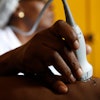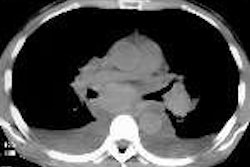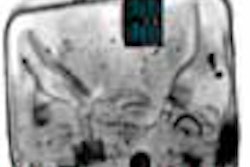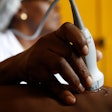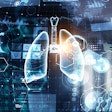As the emotional toll of the September 11 attacks begins to settle and move into focus, it seems appropriate to weigh the effects of trauma on medical professionals. Doctors in particular tend to push their personal feelings aside as they work long work hours under trying circumstances. However, disregarding one's own feelings can lead to long-term emotional consequences.
"Working in a hospital, you get retraumatized. You keep hearing the same stories over and over again," said psychiatrist Dr. Marc Graff. "There’s an endurance factor. You feel as a physician that you have to be there for people. There’s a personal wear and tear in hearing these stories over and over again."
Graff has plenty of experience with trauma counseling. He was working at a Chicago area hospital in 1972 when victims of an Illinois Central commuter train crash were brought in. He also worked with patients, including a number of medical professionals, after the 1994 earthquake in Northridge, CA.
Graff offers the following tips for how medical workers can tend to their own mental health during these troubled times:
- Set aside a time and place for staff to discuss recent events, as well as patients' reactions to them. This should be a place where patients are not allowed so that staff can talk freely. "You’ll always have three or four people in a group muttering and complaining in the hallway, but that’s not enough. You need to have some place that’s for venting and solution-finding," Graff said.
- Department heads should be especially attuned to their staff. Emotional outbursts and short tempers may seem more common. At many institutions, support staff will have originated from war-torn regions, and may be particularly sensitive to the military strike in Afghanistan.
- As the medical conference season kicks into gear, people might be edgy about flying. Doctors tend to consider themselves indestructible, Graff said. Acknowledging that a person cannot be in control of every situation at all times is crucial.
- Medical workers can be wary about seeking professional help. Radiologists are at a disadvantage because of a lack of interaction with other hospital staff, Graff said. "If we are all working in our darkened offices, we’re not really talking with each other. It’s better for everybody to have some sort of appreciation of what other people’s lives are like."
- Those who have been traumatized in the past should be especially aware of their feelings. "It’s the old [reappearance of the] football injury," Graff explained. "You step off the curb 15 years later and your knee goes out. You know exactly why this happened."
- Don’t dismiss comments about late hours or how tired you look. They're a sign that you're overtaxing yourself, Graff said.
- "Count your blessings as a physician. You are honored, you are well-paid, people respect you," Graff advised. "Doctors tend to be smart people, but they are still human. Don’t be afraid to acknowledge your own mortality and sense of defenselessness."
By Shalmali Pal
AuntMinnie.com staff writer
November 1, 2001
Dr. Marc Graff is a partner physician at Kaiser Permanente in Reseda, CA, and is a member of the Disaster Committee, Southern California Psychiatric Society. He is a fellow of the American Pyschiatric Association, where he also serves as a national representative for the Joint Commission on Public Affairs.
Copyright © 2001 AuntMinnie.com


